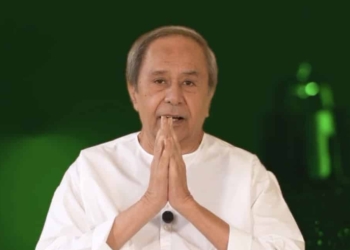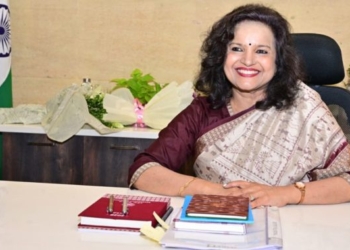Former U.S. President Donald Trump’s surprise claim of having brokered the ceasefire between India and Pakistan has stirred both diplomatic intrigue and global headlines, with Pakistan’s High Commissioner to the United Kingdom, Mohammad Faisal, offering a cautious yet affirming response during a televised interview.
In an appearance on Sky News UK, the Pakistani envoy was directly asked to clarify Trump’s role in halting the escalation between the two nuclear-armed neighbours. While the ceasefire was formally acknowledged by Indian and Pakistani officials through statements from their Directors General of Military Operations (DGMOs), it was Trump who first announced the agreement—via a post on his platform Truth Social—well before either South Asian capital issued public confirmation.
“No, I don’t have the details about it,” Faisal admitted.
“But I have no reason to doubt President Trump, who has ‘tweeted’ that they have played a role in it. So it is very good if our friends are there to help us reach peace and then persevere with the peace.”
In his initial Saturday post, Trump declared that a “FULL AND IMMEDIATE CEASEFIRE” had been achieved between India and Pakistan, claiming American diplomatic intervention had played a crucial part. He praised the “strong and unwaveringly powerful leadership” of both countries and even offered to work toward a long-term solution in Kashmir, a highly sensitive issue that both India and Pakistan consider strictly bilateral.
“Millions of good and innocent people could have died!” Trump wrote.
“Your legacy is greatly enhanced by your brave actions. I am proud that the USA was able to help you arrive at this historic and heroic decision.”
The ceasefire came after nearly a week of escalating hostilities, triggered by the Pahalgam terror attack that killed multiple Indian soldiers and civilians. India retaliated with air and artillery strikes on terror launchpads across the Line of Control and in Pakistan-occupied Kashmir. The tensions raised fears of full-scale conflict until the sudden halt in hostilities was announced at 5:00 PM IST on Saturday.
In the Kashmir Valley, the atmosphere on Sunday morning was one of cautious relief. It marked the first night in nearly a week without the sound of jets, missiles, or drones, offering a fragile sense of peace to millions living in the conflict zone.
Local resident Amina Bhat told Hindustan Times, “We barely slept all week. Last night was the first time I didn’t fear my roof collapsing. I don’t care who stopped the war. I just want it to stay this way.”
Trump’s announcement has triggered political ripples in India, with opposition parties such as the Congress demanding clarification on third-party involvement in a conflict that successive Indian governments have consistently insisted must remain bilateral.
Earlier, AIMIM chief Asaduddin Owaisi also raised concerns about Trump’s role, saying, “Why did the President of a foreign country announce our ceasefire? We have opposed third-party intervention since Simla (1972). Why accept it now?”
India’s Ministry of External Affairs has not yet issued an official statement on Trump’s claim. However, Foreign Secretary Vikram Misri maintained on Saturday that the understanding was “between the two sides’ DGMOs”, echoing India’s long-standing stance against mediation.
While Trump is no longer in office, his influence on international affairs remains potent, particularly in conflict mediation where official channels often overlap with personal diplomacy. His Truth Social posts are closely watched by global media and policymakers alike.
Whether or not Trump’s claim of mediation is fully accurate, his early announcement—before any South Asian authority—has added complexity and ambiguity to an already volatile diplomatic landscape.





























